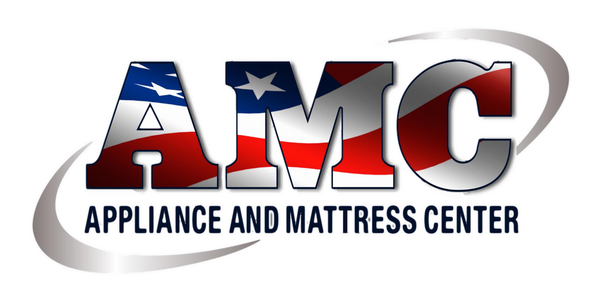
Lease-To-Own Can Help Build or Improve Your Credit
Share
For many consumers—especially those with low or no credit—finding ways to build or rebuild credit can be challenging. One lesser-known but increasingly popular option is a lease-to-own purchase. These agreements allow consumers to get the items they need today, such as furniture, electronics, or appliances, while paying over time in a series of rental payments with the option to own at the end of the term.
But the big question is: can lease-to-own purchases help improve your credit score? The answer is yes—if used wisely. In this article, we’ll explain how lease-to-own purchases work, how they can influence your credit score, and the dos and don’ts to maximize the benefits.
What Is a Lease-to-Own Agreement?
A lease-to-own agreement, also known as rent-to-own, is a payment arrangement where you agree to rent an item for a period of time with the option (or obligation) to purchase it at the end of the lease term. These contracts typically don’t require a high credit score, making them attractive to people who may not qualify for traditional financing.
Some common items offered under lease-to-own agreements include:
- Furniture and mattresses
- Appliances (e.g., refrigerators, washers, dryers)
- Electronics (e.g., laptops, TVs, game consoles)
- Tires and wheels
The lease payments are usually made weekly, biweekly, or monthly, and consumers can return the item at any time without further obligation.
Can Lease-to-Own Help Build Credit?
Yes, lease-to-own purchases can help build or improve your credit score, but only if the company reports your payment history to the major credit bureaus: Equifax, Experian, and TransUnion.
Not all lease-to-own companies report to credit bureaus. However, those that do can help you build a positive payment history, which is the largest factor in your credit score (making up about 35% of your FICO score).
When you make your payments on time consistently, your credit report can reflect that responsible behavior, potentially boosting your score over time.
Make Sure to Ask: Do They Report?
Before entering a lease-to-own agreement, always ask the provider:
- "Do you report payment history to the credit bureaus?"
- "Which bureaus do you report to?"
- "Is there an extra fee for credit reporting?"
Companies like Acima, Progressive Leasing, and Snap Finance offer lease-to-own financing and report to at least one major credit bureau.
How Lease-to-Own Can Impact Your Credit Score
Your credit score is determined by several factors. Lease-to-own agreements can affect the following:
- Payment History (35%): On-time payments build a good record.
- Length of Credit History (15%): A longer lease period reported to bureaus can slightly improve your average account age.
- Credit Mix (10%): Having different types of credit—installment, revolving, lease—can help diversify your profile.
However, lease-to-own can hurt your score if:
- You miss payments or default on your lease
- The account is reported as “charged-off” or “collections”
So, responsibility is key.
Benefits of Using Lease-to-Own to Build Credit
- No credit or bad credit accepted: You can still get access to the products you need.
- Build credit over time: If payments are reported, each one helps your score.
- Simple approval process: Often no hard credit inquiry.
- Flexible return options: You can return the item if finances change.
According to a FICO study, even one late payment can cause your score to drop by over 100 points, but consistent on-time payments can raise it gradually and steadily.
Important Dos and Don’ts
✅ DO:
- Verify credit reporting: Make sure the company reports payments to at least one major bureau.
- Read the fine print: Understand total costs, fees, early purchase options, and return policies.
- Make on-time payments: Set reminders or automate payments to avoid late fees.
- Track your credit score: Use free tools like Credit Karma to monitor changes.
❌ DON’T:
- Assume all companies report to credit bureaus: Many don’t unless specifically stated.
- Overextend yourself financially: Only agree to payments you can comfortably afford.
- Ignore fees or penalties: Some contracts have hefty early termination or late payment fees.
- Miss payments: One missed lease payment can undo months of progress on your credit score.
Who Should Consider Lease-to-Own for Credit Building?
Lease-to-own isn’t the right fit for everyone, but it can be a smart option for:
- People with no credit history trying to establish credit
- Individuals with low credit scores looking to rebuild
- Consumers needing essential household items quickly
- Those who want an alternative to high-interest credit cards
It’s especially useful if you’re already planning to purchase items like a couch, mattress, or laptop, and you can’t qualify for 0% financing.
Lease-to-Own vs. Traditional Credit Options
| Feature | Lease-to-Own | Traditional Credit |
|---|---|---|
| Requires Good Credit | No | Yes |
| Reports to Credit Bureaus | Sometimes | Almost Always |
| Early Buyout Option | Yes | Depends |
| Return Option | Yes | No |
Both have their place, but lease-to-own can be a stepping stone to better credit and eligibility for traditional credit lines in the future.
Final Thoughts
If you’re trying to build or rebuild your credit, a lease-to-own agreement can be a powerful tool—but only if you understand how it works and choose the right provider. Not every lease-to-own company reports payments to credit bureaus, so doing your homework upfront is critical.
Stick to the dos, avoid the don’ts, and track your credit regularly to measure your progress. With the right approach, lease-to-own can help you move from credit invisibility to creditworthiness.
References
- FICO Blog – How a Late Payment Affects Your Score
- Consumer Financial Protection Bureau
- Credit Karma
- Experian – Rent-to-Own and Your Credit Score
Disclaimer: This content is for informational purposes only and should not be taken as financial advice. Always consult with a financial professional before making credit-related decisions.
